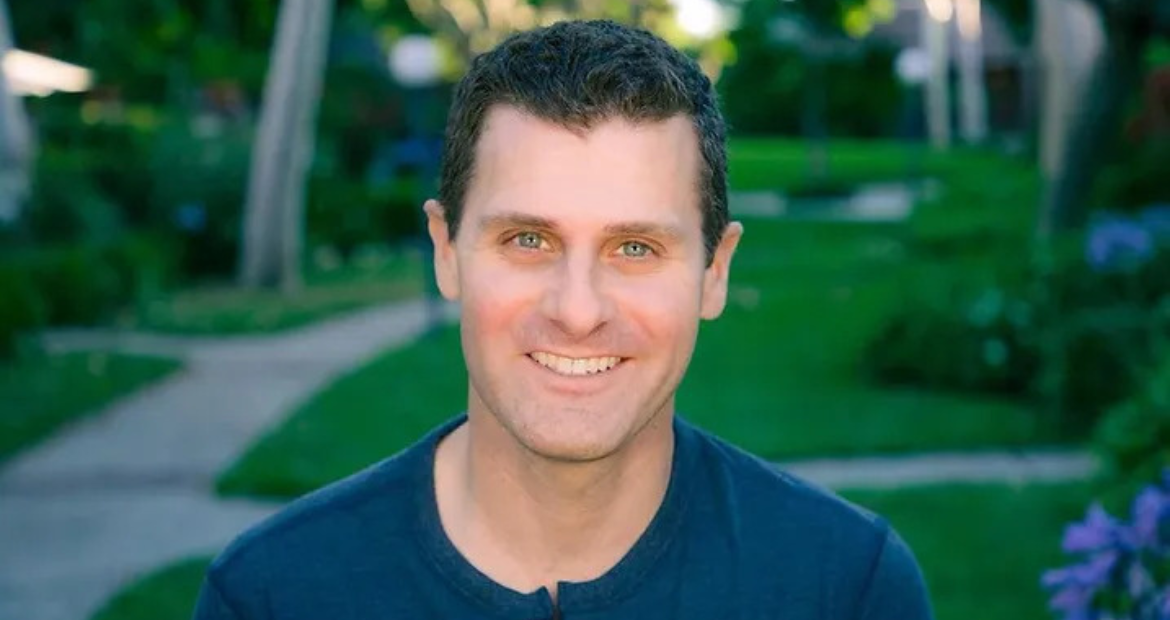Earlier this year, AEPi announced that, since the inception of its international partnership with Gift of Life 19 years ago, 613 individuals had found matches for bone marrow or stem cell transplant. (Read more about this milestone here). The mitzvah of helping to preserve a life is an integral part of our fraternity’s values.
Brother David Krissman (University of Washington, 2003) first became acquainted with some of the issues of organ transplant as he looked to develop a screenplay but has since used his talents to develop a platform to advocate for those looking for kidney transplants and to reform the transplant system.
“My passion has always been – since I was 18 – to be a writer for cinema and television. After leaving Washington and getting a degree at Loyola Marymount in film production, I started a career in film production, doing a lot of work in Hollywood on post-production,” said Brother Krissman. “But, I always continued to write – before work, after work, on the weekends.”
The writing began to pay off and by 2013, he was one of the more prolific screenwriters in the industry. During the research phase of one of his projects, he came across a New York Times article on paired kidney donations. “The screenwriter in me loved the thought of all of these kidneys crossing the country, with different donors donating kidneys into the national kidney registry. I heard about a 35-organ long chain, meaning 70 operations across the country were connected. It amazed me that that is what took place.”
After finishing the screenplay, he still thought there was a story to be told so he launched a documentary podcast and then a website, www.thegreatsocialexperiment.net.
“I realized that this is our country’s only experiment with universal healthcare. Since 1972, the US government has guaranteed healthcare coverage for people with kidney failure. While the program has been a life raft for millions of patients who have needed dialysis, in many ways our treatment of kidney failure has been a cautionary tale. Understanding the lessons of this story not only provides a path for better kidney care, but a powerful framework for fixing healthcare in our system as a whole.”
The four-hour, six-part podcast series demonstrates how the system has fallen short and how the solutions being proposed may be a step in the right direction but won’t solve the country’s health care crisis. “I firmly believe that anyone who listens to the podcases will change the way he or she looks at health care in the country.”
Telling the story hasn’t been enough and Brother Krissman has used his platform to advocate for those most in need. “This is a cautionary tale because it is clear that in terms of cost and quality, the system does not treat people of socioeconomic minorities the same way.”
His website now includes a section where he advocates for patients looking for donations and, using his full-time career learnings, he has created videos for patients looking for kidney transplants. “The average life expectancy is three years for someone on dialysis and the average wait time is also three years. One way to bypass the list is through a living donor,” said Brother Krissman. “I created this tool, which is an online hub where people, looking for donors, can tell their stories. Each patient has a unique URL and an action link, complete with a text story and video.”
“If you can get someone’s story out there, the hope is that someone will see it and takes that next step.”
Brother Krissman is no stranger to taking on a challenge to develop something from scratch. As an AEPi founding father at the University of Washington, he helped build the Chi Deuteron chapter from scratch. “It was one of the best experiences of my life. Thirteen of us started the chapter and we were up to 17 or 18 by the time we moved into a house my sophomore year. I won’t say it wasn’t chaotic. We were creating everything on the fly, but we had fun and gave and received a lot of emotional support from each other.
“I have never laughed as hard as I did in my chapter meetings. I’ll always look back on those times fondly.”
Where his new platform takes him is unclear but the passion for building things that matter and help people is clear. “If I can help get this information out to more people, we can make a difference.”
Making a difference – not just by changing health care policy but by saving people’s lives.
The great social experiment podcast is available on all major podcast platforms. More information and links to support the website and – most importantly – to hear the stories of those looking for organ donations – are available on Brother Krissman’s website: www.thegreatsocialexperiment.net.
